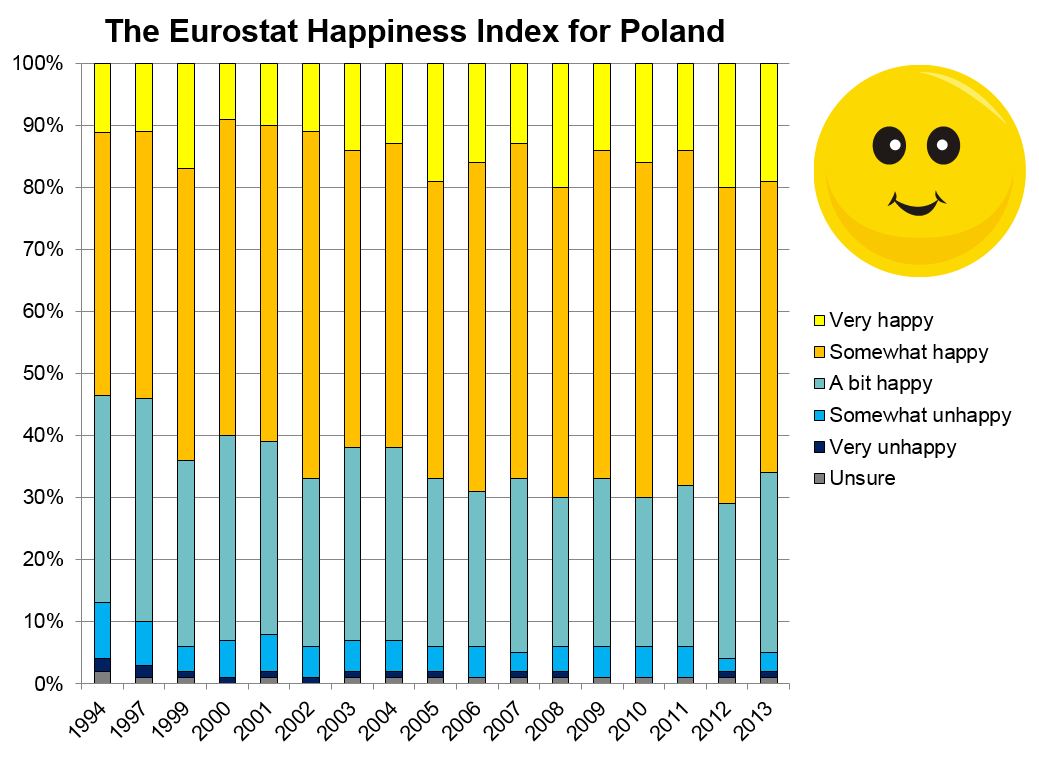More on the Happy Poles
I’m sure no one missed the big holiday last week: International Happiness Day (March 20)!
Well, perhaps this hasn’t yet become a major tradition where you live, but it is the occasion for the European Commission’s “Eurostat” agency to release its annual report on the quality of life in Europe. That organization has developed a composite metric that blends together a bunch of different measures of subjective well-being (those interested in the methodological details can click here). Suffice it to say that this is more than just a simple inquiry asking people “are you happy”? Rather, it encompasses questions about how satisfied respondents are in a many different aspects of their lives, and translates that into a percentage that is supposed to determine overall subjective welfare.
Recalling my post from a few weeks ago about Polish optimism, I was eager to see how the country ranked alongside its neighbors. It turns out that with a mean life satisfaction index of 73%, the Poles scores quite well—not as joyful as the Scandinavian countries (80% for the Swedes, Finns, and Danes, 79% for the Norwegians and Icelanders), but a lot happier than the Bulgarians (48%), or Hungarians (62%). The Poles are more cheerful than the French (70%) the Czechs (69%) the Italians (67%), and the Spaniards (69%), and they tie the Brits and the Germans.
Obviously we wouldn’t want to draw too many conclusions from an index like this one, but it does highlight some patterns that are worth attending to. For example, most European countries show a rough consistency in happiness ratings across various age groups, but in Poland the contrasts are stark. If we only measured people aged 16-24, the Poles would come only behind Austria, Finland, and Iceland with a score of 81%. The scores for those over age 65, however, plummet in Poland to 69%, far down to the bottom dozen countries on the list.
The other pattern that jumped out was the way this has changed over time. I remember the sense of gloom that one felt in Poland back in the 1980s; more than any of the “objective” problems facing the country at the time, I thought that the depressed and depressing mood of the place was an indicator of serious problems. A friend explained at the time that this was deeply rooted in Polish culture, because those who seemed too cheerful were thought to be insincere and superficial. Well, so much for those deep roots….
